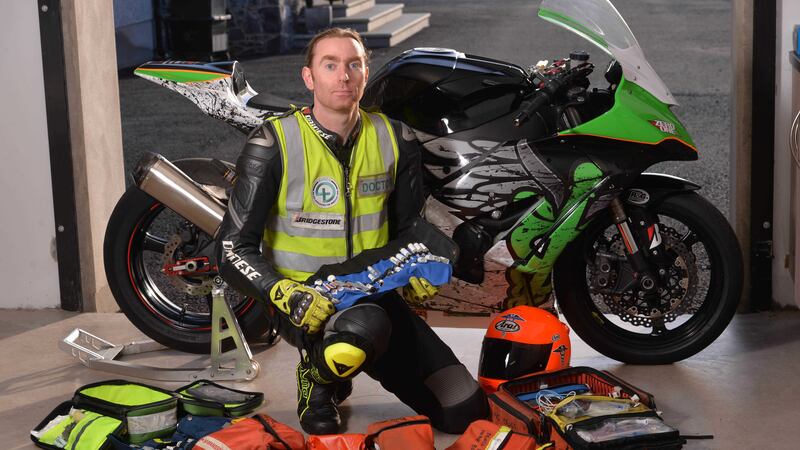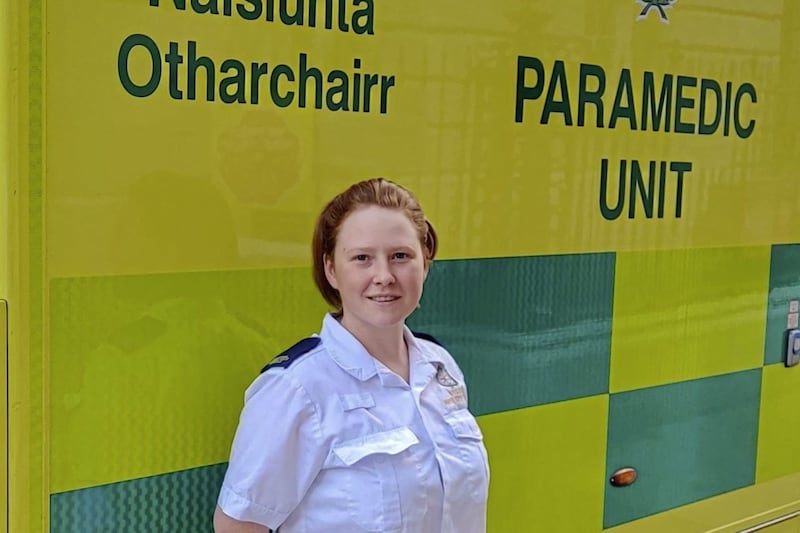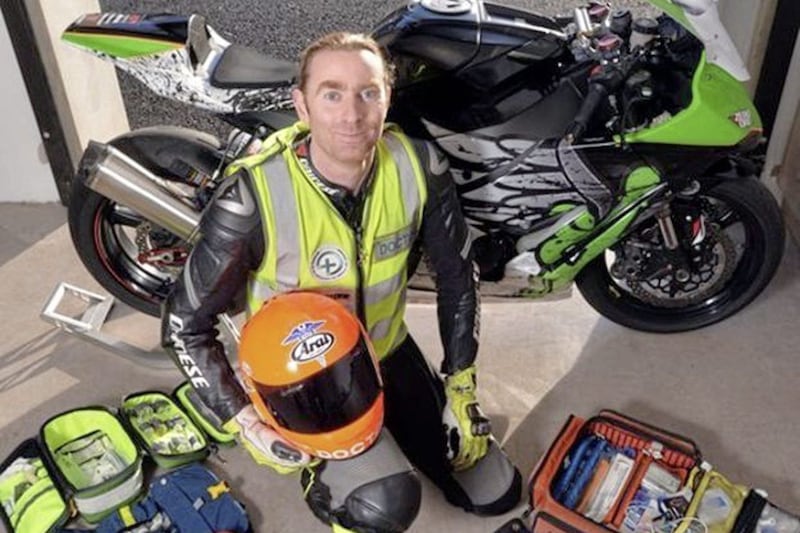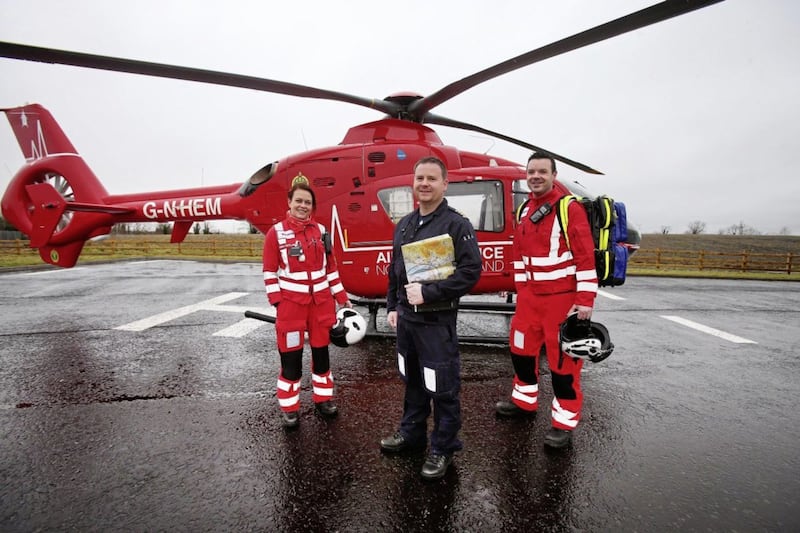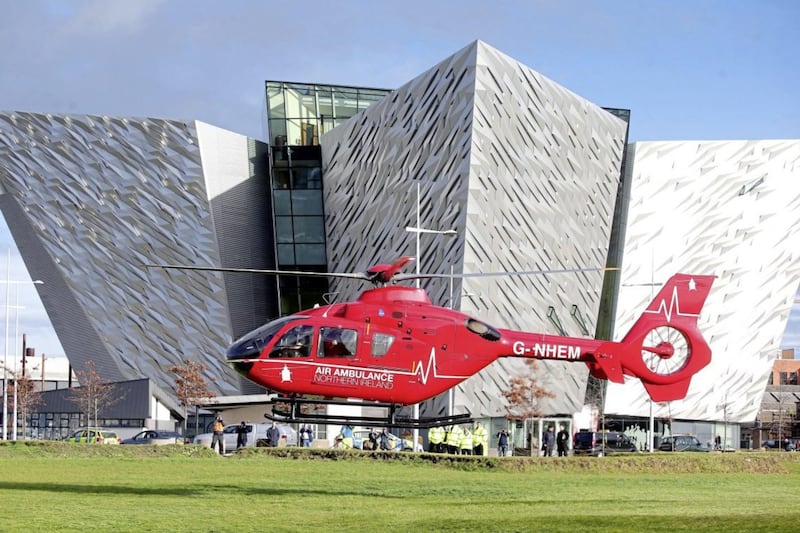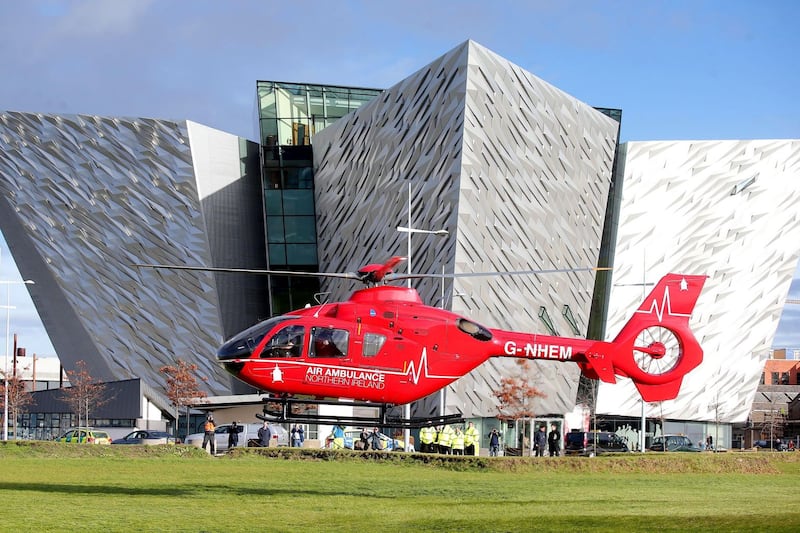THE family of the late Dr John Hinds have accepted an award honouring his work and contribution to sport in Northern Ireland.
Dr Hinds, one of the so-called 'flying doctors' of Irish road racing, died in a motorcycle event in the Republic in July 2015.
He died after being involved in an accident while providing medical cover at a Skerries 100 practice session.
Dr Hinds regularly worked at the North West 200 motorbike races in Co Antrim.
Dr Hinds was posthumously awarded a special award on behalf of the BBC Get Inspired Unsung Hero for his volunteering work in sport in the run up to this year’s BBC Sports Personality of the Year which is to be held in Belfast this weekend.
Accepting the award from BBC sports reporter Thomas Kane was Dr Hind’s partner Dr Janet Acheson, his long term co-worker Dr Fred McSorley and his mother Josephine Hinds.
Dr Acheson thanked BBC Sport for recognising and honouring Dr Hind’s work.
She said: "In John’s typical but unassuming way, we accept this for John but also for the volunteer teams that he was part of.
"I think this award is as much theirs as it is ours and his. Thank you.”
Dr Hinds, who was also known as `Doc John', was a strong advocate for a regional air ambulance for Northern Ireland and had met Health Minister Simon Hamilton to discuss the issue.
Following his death, his family vowed to continue his campaign, urging the public to sign a petition in his memory.
His partner, Dr Acheson told Stormont that a properly structured Helicopter Emergency Medical Service (HEMS) would "make a lasting difference to the people of this country".
In September, Mr Hamilton announced the north is to get an air ambulance at an annual cost of £1.8 million with an initial spend of £2.38m.
Mr Hamilton said the "difficult financial climate" meant it would be necessary to secure "a robust and recurrent charitable funding contribution".
He welcomed "recent approaches from potential charitable sources who potentially could raise funds and provide other support".
The minister said a Helicopter Emergency Medical Service (Hems) was a "key componet" of the Northern Ireland trauma network which icnludes the newly opened critial care building at the Royal Victoria Hospital in Belfast.
The £152 million build has a helipad on its roof and concerns had been raised that it was not being used.
“Speed of patient transport to the specialist centre is a key requirement for an effective trauma network and I want to also take this to the next level by announcing today my commitment to the establishment of a Northern Ireland HEMS as a key component of the Trauma Network," Mr Hamilton said.
A public consultation will follow, he added.
Northern Ireland is the only region in the NHS that does not have a dedicated service. Instead patients are flown by police helicopters to Musgrave Park Hospital, which is a former military base in Belfast, and transferred by ambulance to the Royal Victoria Hospital, which is the regional 'trauma' centre.
The Republic's air ambulance service costs €2.6 million a year and is operated by the National Ambulance Service and the Air Corps.
There had been a groundswell of support for the introduction of a helcopter ambulance following the death of Dr Hinds.
Dr Hinds had campaigned for an air ambulance service and tens of thousands of people signed a petition supporting his goal since his death in July.
In a statement the health minister said he believed his announcement held the prospect of "implementing the vision for major trauma services which the late Dr John Hinds, and his colleagues, have highlighted".
